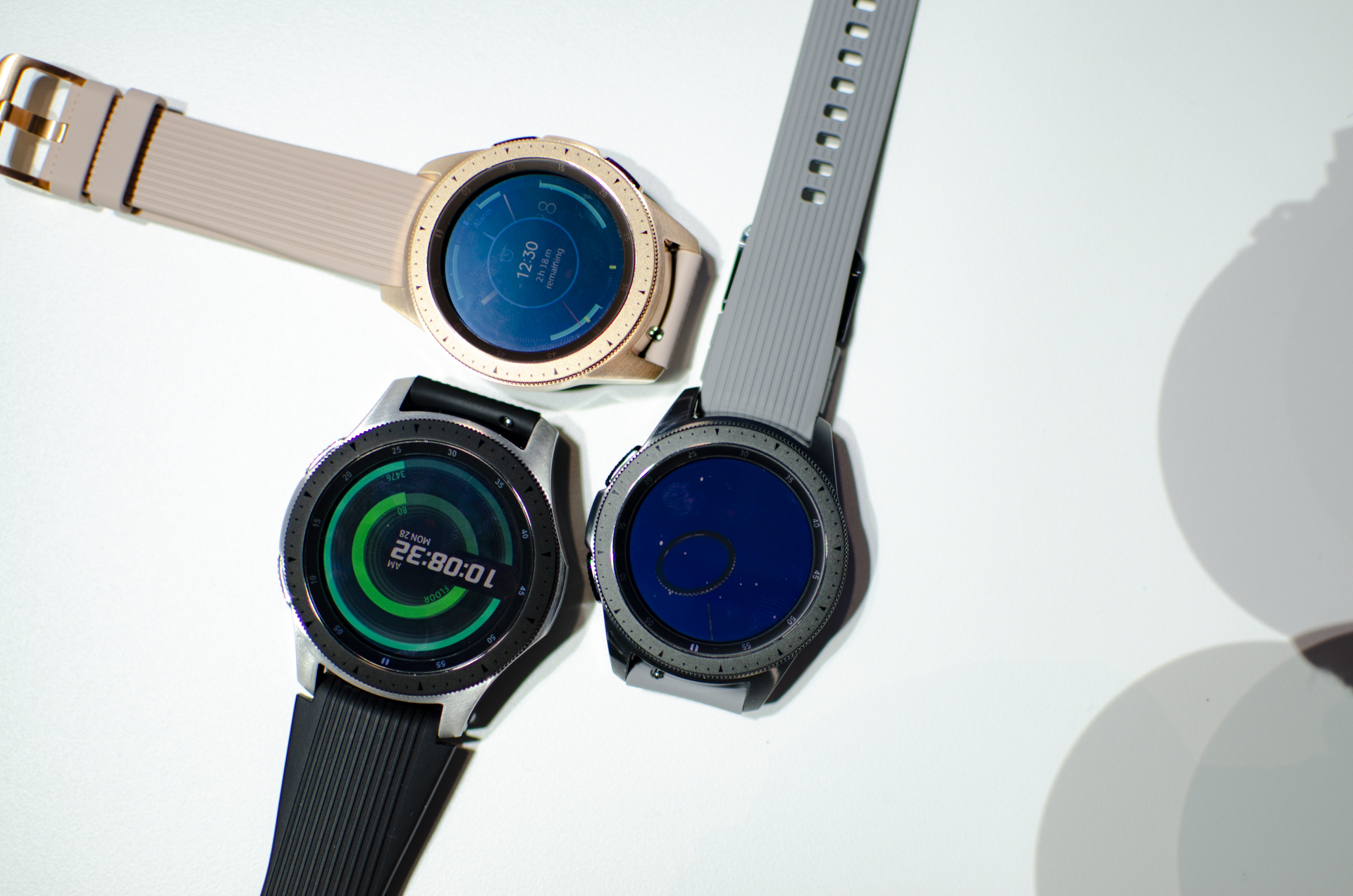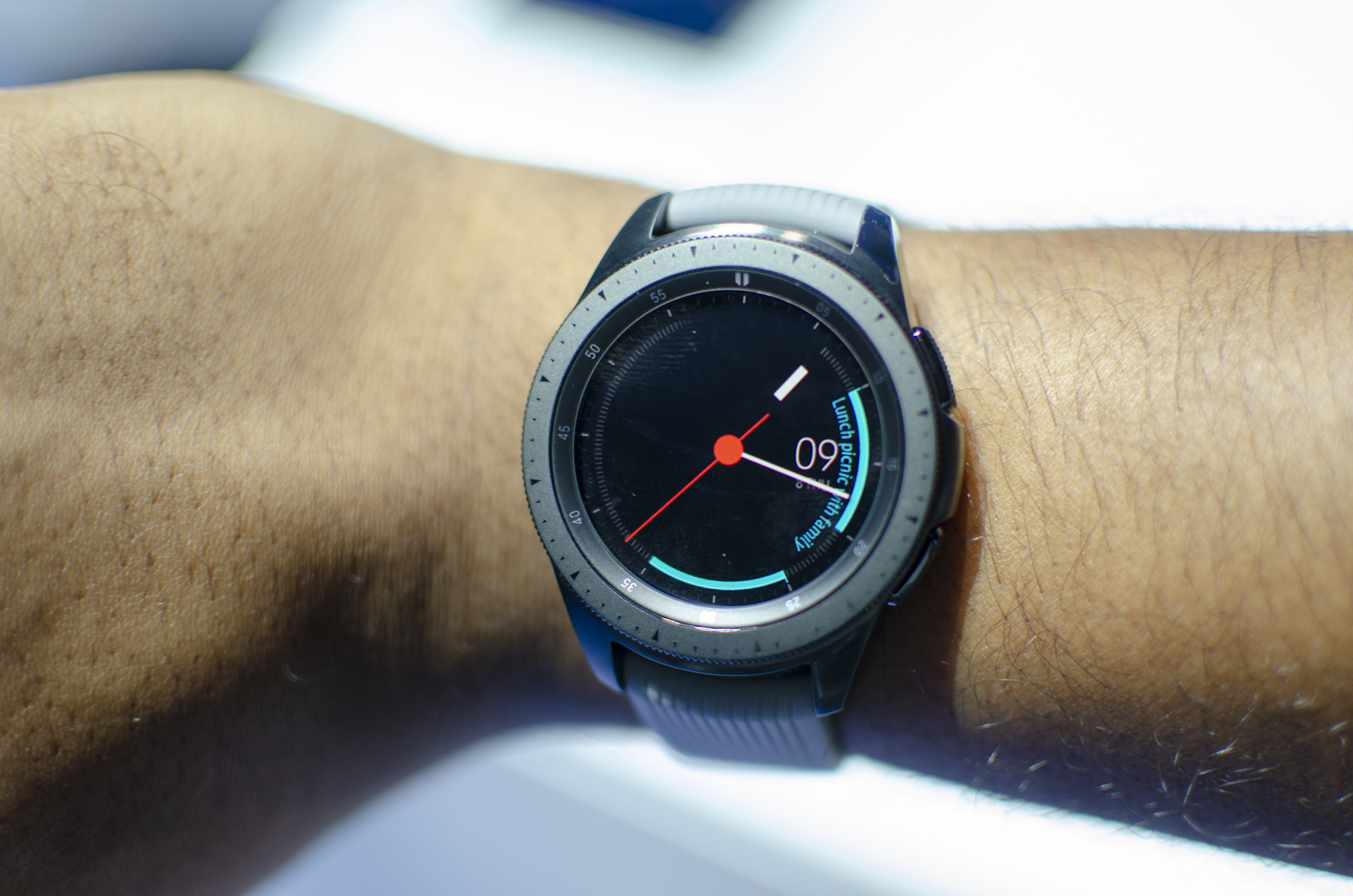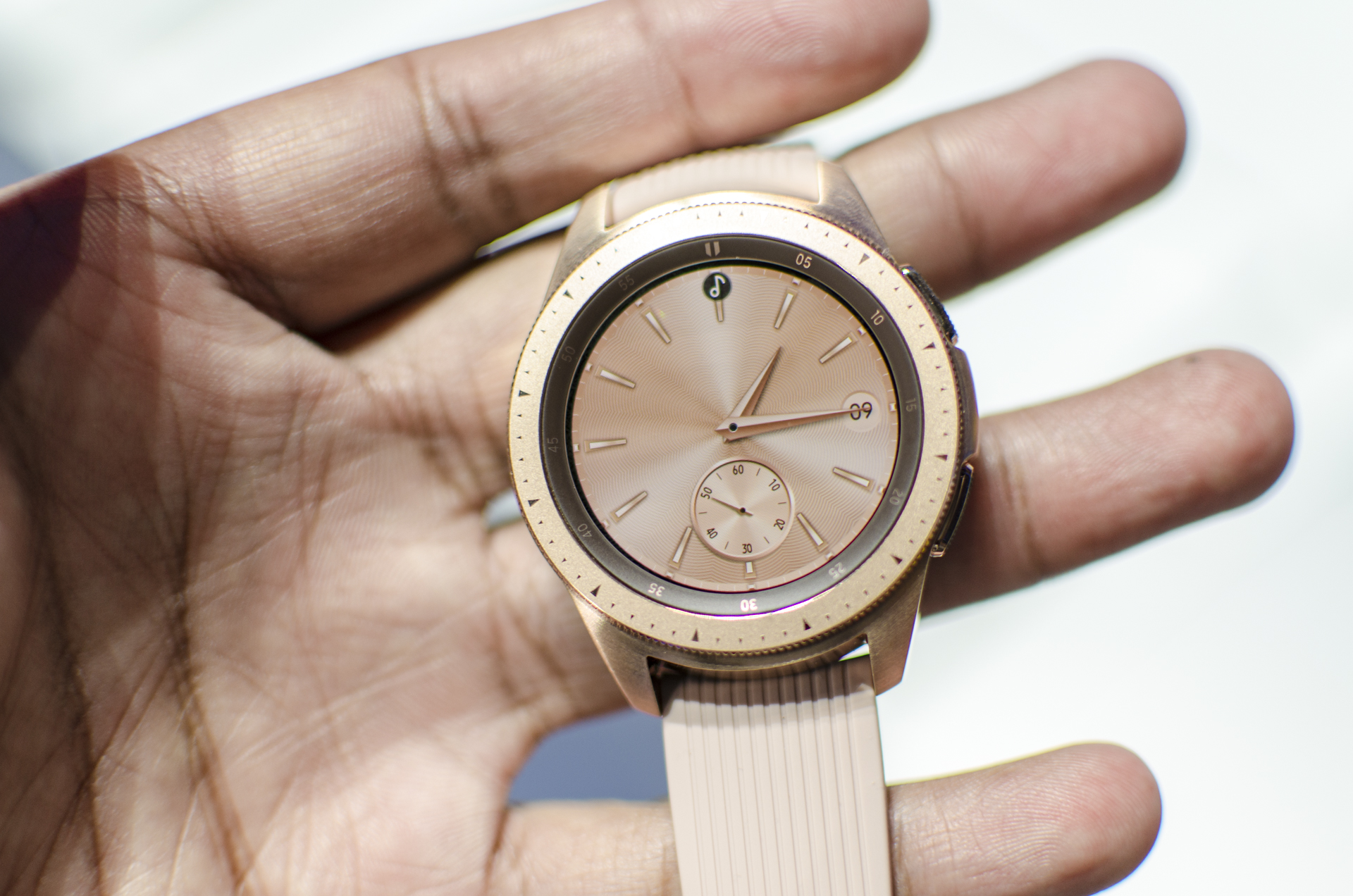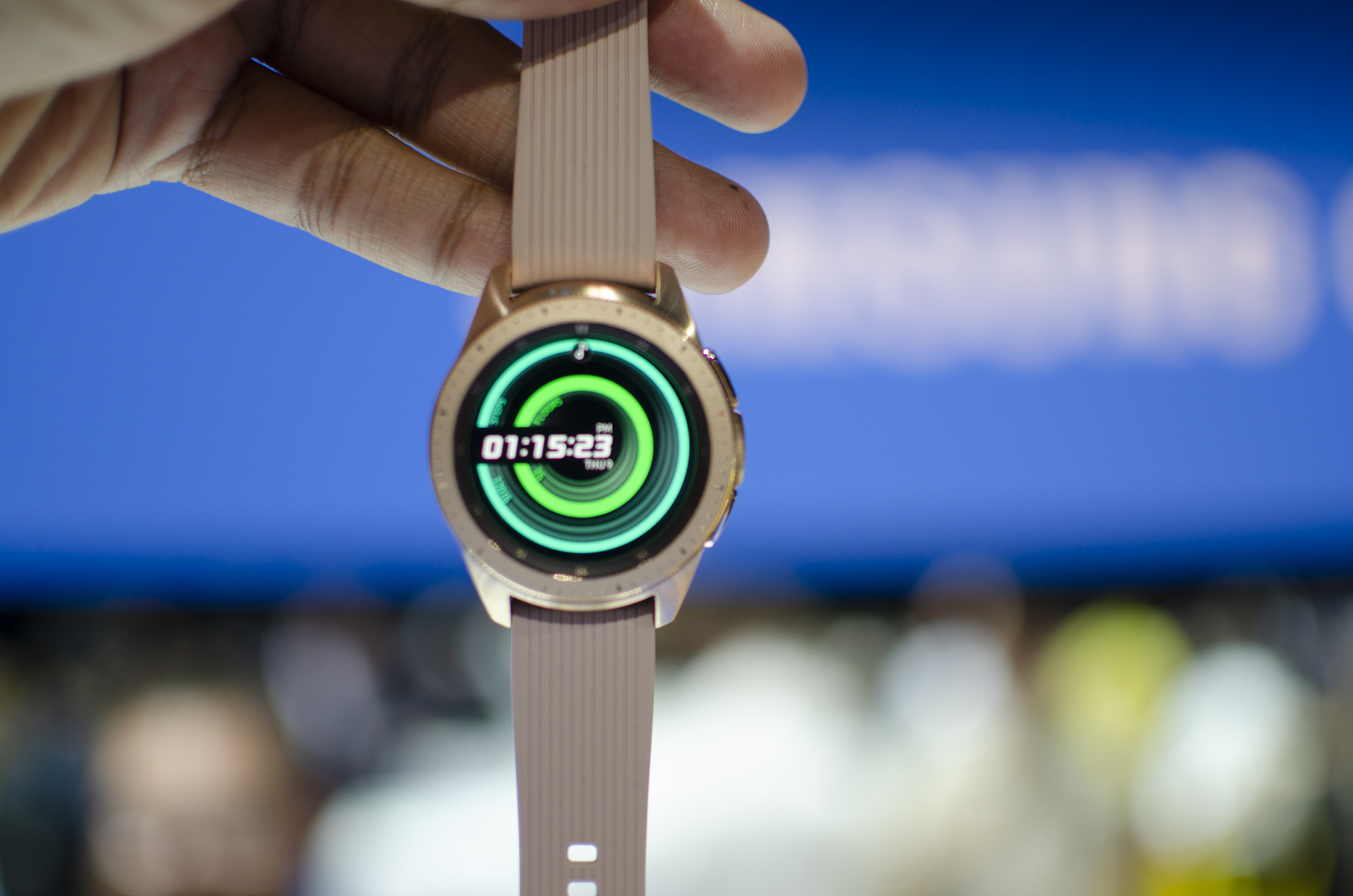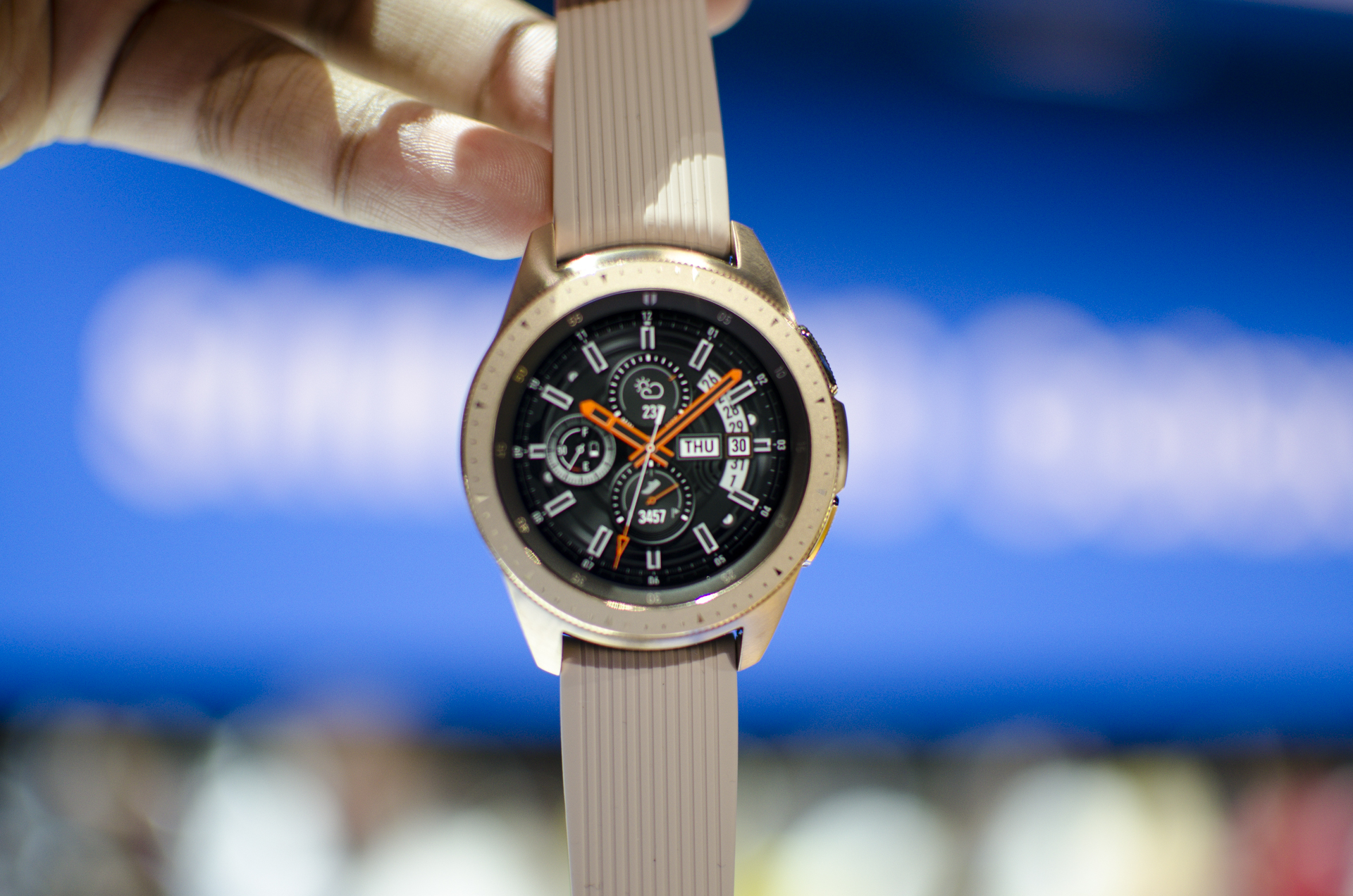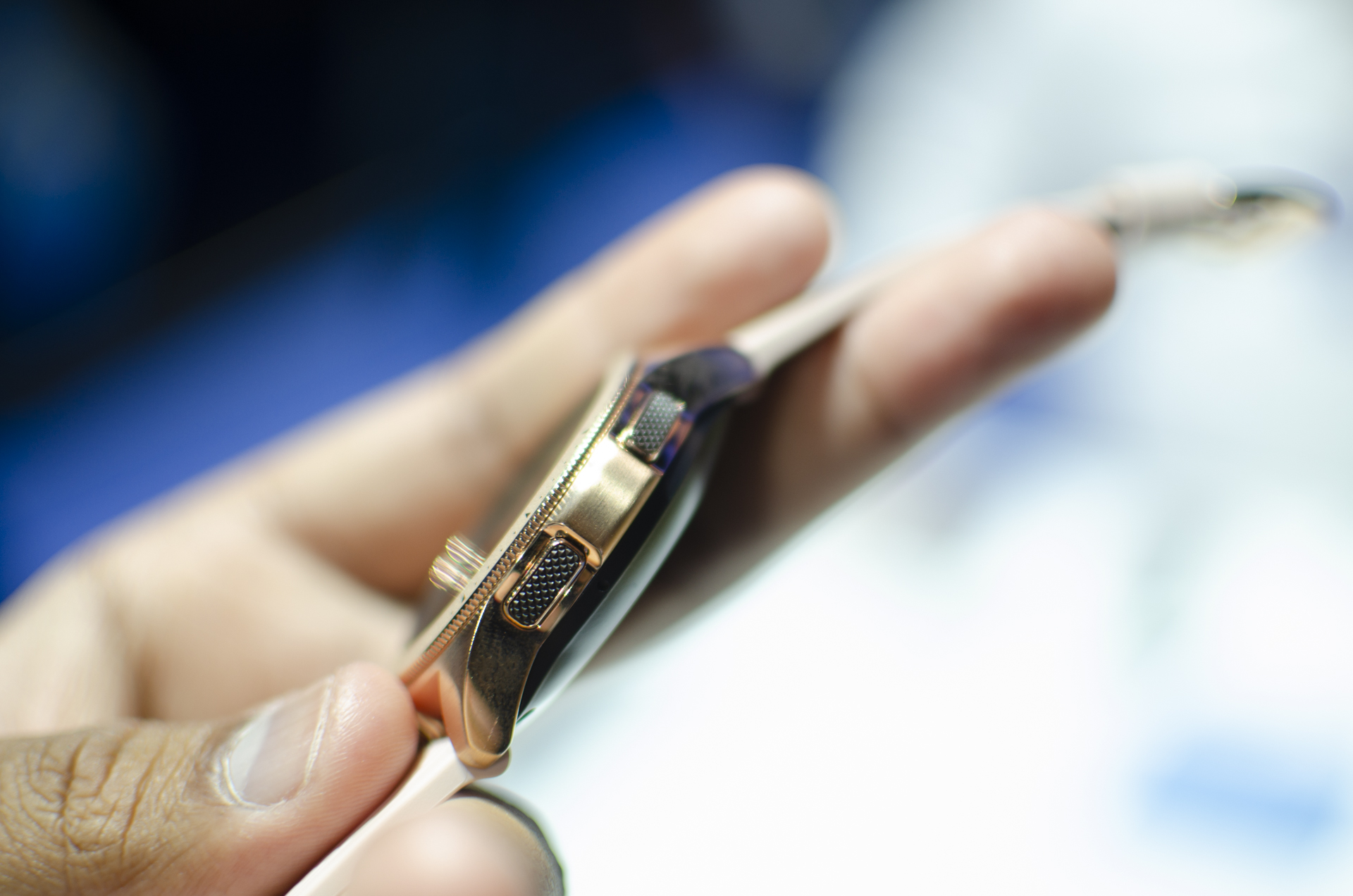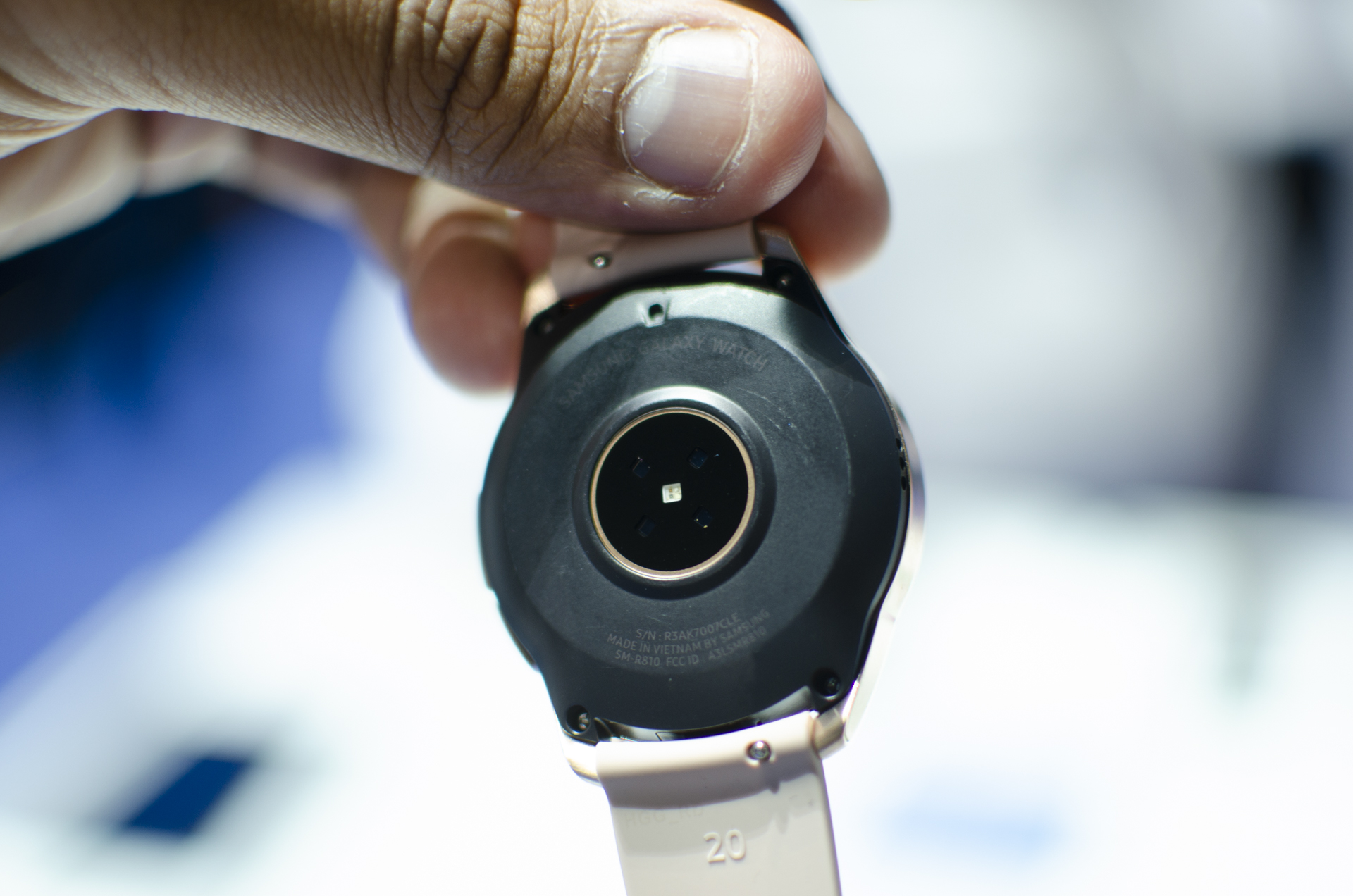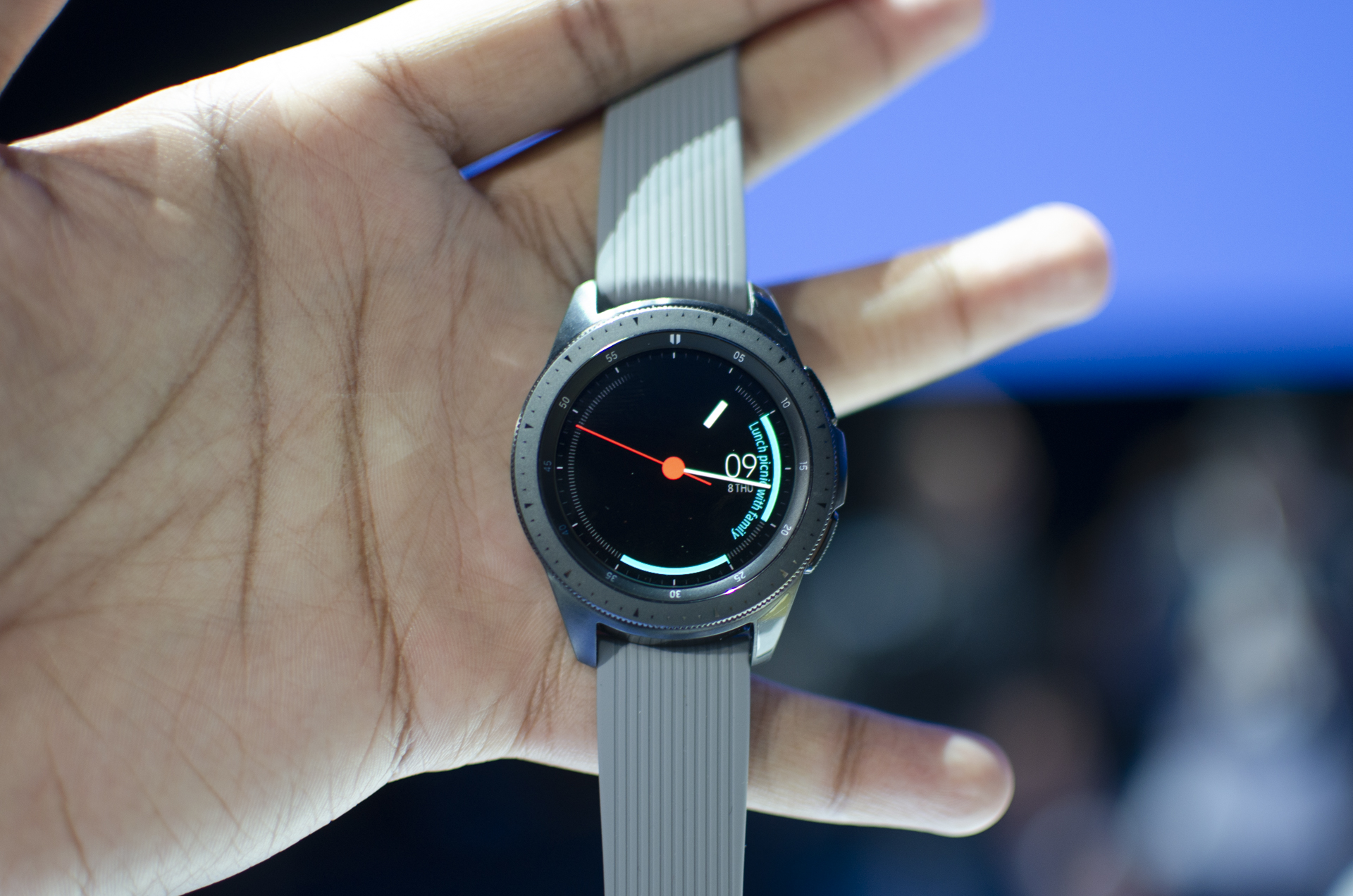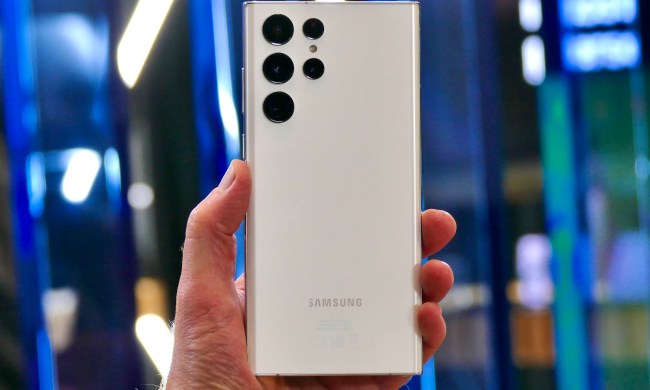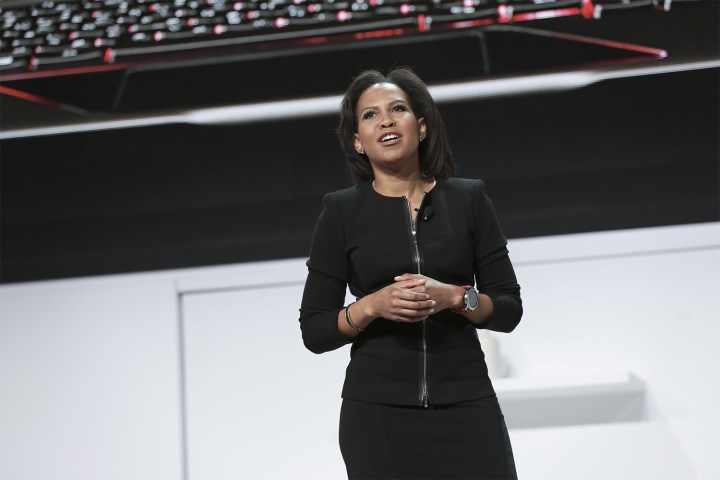
To hear Samsung’s Alanna Cotton tell it, the Galaxy Watch isn’t just a smartwatch: It’s going to transform your life. So forget about fitness tracking, which is just one piece in the puzzle. And forget about notifications (they’re a little annoying anyway, aren’t they?).
The Galaxy Watch, she says, can make you a better you.
“If you think about the whole idea of mindfulness and really living a more holistic life, we feel like technology and specifically wearables can be at the center and really help people get from where they are to where they want to be. And you know, it’s gorgeous,” Cotton says with a laugh.
“We all know what having a rested body does for having a really calm mind.”
Samsung’s website echoes that sentiment, noting that the Watch can help you “live a stronger, smarter life.” Hell, if it can do half of that, it’s a steal at just $349. How much would you pay to lead a better life? But can it actually do that? Cotton makes a compelling case for it. As Senior Vice President and General Manager at Samsung Electronics America, she runs most of the company’s gadget businesses — wearables, tablets, mobile audio, and VR, to name a few. Following Samsung’s Unpacked event in Brooklyn this week, Digital Trends sat down with Cotton to learn more about the Watch.
So can it do all of that stuff? Maybe. And do I have to deal with Bixby? Yes, definitely. (sorry.)
From fitness to wellness — with a few steps in between
“We’re excited about the impact [wearables] can have on people’s lives,” Cotton says. That’s all well and good, but what does that mean at the end of the day?
For starters, there’s the fitness stuff, because of course there is. Fitness has been the driving force behind wearables, the lone bright spot in a market that has looked simply atrocious. I wrote last year about the sorry state of wearables after Jawbone bit the dust and the drums sounded for TomTom; Intel finally fled the scene in April, abandoning several hundred million dollars invested in wearables.

Still, fitness wearables are handy – some would say necessary. Garmin thrives, the Apple Watch is surprisingly popular as a fitness tracker, and Fitbit is just fine (ignore the stock price). The Galaxy Watch doubles down on fitness, with a new feature that automatically detects several types of fitness activities – no need to fuss with buttons to record that next run, in other words. It also ticks all the right boxes for athletes, Cotton told Digital Trends.
It’s not just a fitness tracker, it’s a … spirit tracker? A mind-and-body tracker?
“A lot of consumers are creating space for health and wellness in their actual physical homes, and we feel like this device can be a central part of that. Whether you’re in front of the TV practicing yoga at the end of a very long day to unwind, or you take it for your pace out on a run down by the river, the device is meant to go with you wherever you are.”
But wearables can do more than just fitness. After all, an Apple Watch saved a woman’s life recently. And the Galaxy Watch really doubles down on overall health, Cotton explains.
“A lot of studies are being published on mindfulness right now. So the idea is that a watch can help you detect and manage your stress levels, offer you some immediate solutions to help manage that, and hopefully develop really healthy routines over time to be able to improve your quality of life.”
It’s not just a fitness tracker, it’s a … spirit tracker? A mind-and-body tracker? Wearables have tried to be all sorts of things – one even tried to monitor your food intake from your wrist – but we’ve never seen one measure your spiritual side. To do so, the device features a heart-rate monitor that will detect when your heart rate goes up, and give you guided breathing exercises as a way to manage stress. Sure, Apple Watches have similar features. It also walks you through guided meditation and helps track your calorie intake. It even watches while you sleep.
“We all know what having a rested body does for having a really calm mind. It’s a big part of the equation of wellness. So the ability to do all sorts of sleep tracking and monitoring so you can really develop healthy routines” is crucial, Cotton says.
The 800-pound Apple in the room
To talk about the wearable space and not mention the Apple Watch is like talking about salads and not mentioning lettuce. Apple still refuses to detail sales figures, but analysts say the company’s smallest product category is also its fastest growing. One of the reasons for that is the ecosystem thing: Apple’s devices work best with Apple’s other devices. Sure, the AirPods will work with an Android phone, but Apple doesn’t make control software for the Android platform, so good luck, you know, adjusting the settings and stuff. Does Samsung plan a similar strategy?
In a word: no.
“We know that the seamlessness of the connectivity works better with Samsung devices, but also we’re not going to sacrifice consumers’ ability to choose and customize the experience for them,” Cotton told us.
“For us, at the center of what we do is all about consumer choice. We want people to be able to personalize their experiences, such that their technology works around their life versus the other way around.”
As evidence, she cites the SmartThings platform, which is compatible with hundreds of different devices. Broad compatibility is sure to increase ease of use for consumers, yet another way the Samsung Watch may increase your overall well-being. But will it make you a better person? Only time will tell – and there’s probably an app for that.
